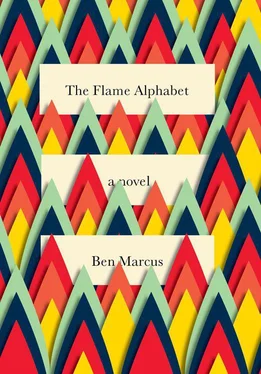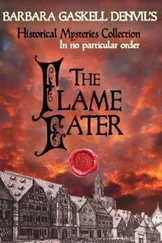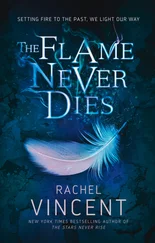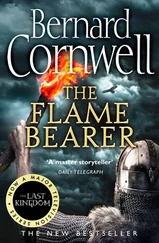“I don’t think those things actually happened,” I said. “As in really happened. If we’re still talking about Babel.”
He’d gotten himself pretty worked up. A halo of spit ringed his mouth, his eyes flaring.
“And you’re an authority on what has and hasn’t happened? Where’d you do your training?”
“It’s a parable,” I said. “You believe that, right? You don’t think it’s a true story?”
“Forget it,” he said.
I had no interest in speaking about Babel, a heavy-handed narrative from a world that wasn’t mine. Those obvious myths from the Old Testament— decoy, decoy —bored me anyway. I’d brought it up because of how harmless it seemed, drowning in easy connotations. But part of me couldn’t resist the topic.
“So you’re saying,” I began, as if I didn’t really understand what he was saying, “you’re saying that a biblical story in which God strikes down his people with aphasia is not relevant? A story about losing our power of speech?”
“That’s exactly what I’m saying,” said Murphy, quietly. “Sometimes it serves a larger interest to keep people from communicating. The sharing of information hasn’t always been a good thing. Sometimes it is a very terrible thing. Perhaps always. God behaved appropriately in that situation.”
“You don’t think people will write books about this very topic, linking this speech poison, or whatever it is, to something biblical?”
“On the contrary,” said Murphy, “that’s exactly what I think. As always, people will court the gravest misunderstandings. People are driven to be wrong in the most spectacular ways. There’s fame in it. We are in a high season of error. But don’t fool yourself. There aren’t going to be too many more books. We’re not going to see a lot of documented analysis or any kind of analysis. This crisis is different. It will be met with muteness. There’s no time for a last word. The last word’s already been had, and it wasn’t by us. Civilization’s first epidemic to defy a public exchange of language. This is a plague among cavemen, and soon we’ll only be grunting to each other about it. You can’t exactly describe a poison with more of itself, write about how poisonous writing is. And pretty soon the causes won’t really seem to matter. The whole fucking idea of cause.”
Murphy fell silent and we walked through the cold streets back into my neighborhood. It would be morning soon and I wanted to get to sleep before Esther woke up. My gear was heavy and hot on my body and I was tired.
“I guess this is me,” I said, stopping short at a buckled brick path.
It wasn’t my house we stood in front of, but I didn’t want Murphy to know where I lived. I pictured him the other day in the woods, harassing the Jewish couple, and I hadn’t seen them or their violent boys again. I figured I could say good night, walk around and hit the alley, then cut back over to my house.
“Here we are, huh?” Murphy looked at the house and then back at me with a grin.
I had picked a difficult house to lie about. There was a windowless store with a side entrance dormered onto the residence. The sign said it sold ribbons, cartridges, adhesives. A portion of the roof was exposed, with blue Tyvek badly nailed over a hole. It would be too cold to live there. Whatever construction that was under way must have been abandoned for the winter.
“All right, uh, Bill , or whoever you are,” said Murphy.
The name I’d given him was Steven. He was testing me. I let it go.
Manage your disclosures . The problem was that, by lying, I’d made him more curious. I needed him to feel he had picked me clean.
“You should come to the Oliver’s. That’s where we’ve been meeting. But you’d better get right with meds, and soon, no matter what you believe. You need to start dosing. Have you been to the Oliver’s?”
I stalled. “Sure.” I pictured myself in a long, beige room trying to climb over a wall.
“Obviously you haven’t, but that’s all right.”
Murphy seemed less amused, rubbed his face so hard it hurt to watch. From his pocket he took out the grease again, pushed a tuft of it into the roof of his mouth, smacked his lips.
“Bill, I’m not the devil. I’m not evil,” he said. “You’re not alone is all. It’s perfectly all right to work together on this thing. But I think I understand. Privacy and all that. You have your little hut, I presume? Your forest worship? Maybe you’re one of those? People are wondering if there’s some, you know , in those locations.”
Some, you know, what ?
Murphy paused, waited for me to roll over on my back with my legs in the air, begging him to take me.
“It would seem that secret channels of insight are obliged right now to open up, reveal their wares. This is definitely not the time for secrecy.”
Oh, but yes it is , I thought. I gave him nothing.
“I hope it works out for you,” he added.
This was bait I would not take. I smiled, lacking all the required skills for this conversation. My lies were glaring, but Murphy remained polite.
“Here,” said Murphy. “Here’s the address, and my number.”
I looked at the script on the card and my eyes watered, lost focus.
Murphy nodded up at the house that wasn’t mine.
“You’d be lucky if you really lived here,” he said.
I stared at the house without really seeing it.
“Check your vitals,” said Murphy. “No children in there that I can tell. I bet your heart is thriving right now. I wish to fuck that I lived here.”
He was wrong. My heart wasn’t thriving. It felt tight and cold, strangling inside my rib cage. I needed to get out of there.
We stared at this house as if we were tourists looking up at a great cathedral.
“Anyway,” Murphy finally said, “don’t court too much blame out there. You know, blame is interesting , but be careful. It’s a dangerous strategy.”
Blame. I’d said nothing to him about it.
“I’m sure we’ll see each other again.”
Not if I can help it, I didn’t say, whoever you fucking are.
It was early November. The Forsythe drug trials sped through testing, and the basic anti-speech agents were released for free to the public, dumped into empty newspaper bins on corners.
The drugs were a medical slush short on real medicine, soggy little tonics desperate for vast strengthening. It was the wrong time for placebos, for liquid vials of nothing. When we injected them, they only stupefied us until we sputtered awake in a different room. Instead of healing us, this medicine seemed only to bring on spells of afternoon death. A rehearsal, maybe. A warm-up.
In the days after my run-in with Murphy I rigged a lab in the kitchen, following Thompson’s orders. On my conscious nights I milled speculative medicines designed to keep us healthy enough to hold our ground at home. Such nights were coming less often, but when I was able to crawl from the rug in my home office, where I had erected a person-size humidor in which to test the inhalers, and when the evening was cleansed of potential encounters with Esther, I started boiling down drugs.
From the kitchen’s single crusted naval port window, as I waited for my solutions to cool, I watched the emergency vans cruise down Wilderleigh at night, sampling the air with roof-mounted saucers and testing wands that spoiled from their bumpers like fins.
No such vans roamed the streets in daylight. A medical truck might have parked on the corner, but I suspect this was for the personal use of a neighbor, the private removal of a loved one who’d just fallen to the toll. A yellow hearse roamed the neighborhood, opening its doors to sheet-covered gurneys. And the occasional diesel helicopter pitched north of us through the upper Montrier Valley, taking aerial surveys, but it was a skeletal effort that could not have yielded much useful information. If officials wanted data on the predicament, they gathered it at night from the vans, and this I knew because nighttime was best for lab work. If there was medical forensics being practiced in our neighborhood, I’d see it through the window.
Читать дальше











